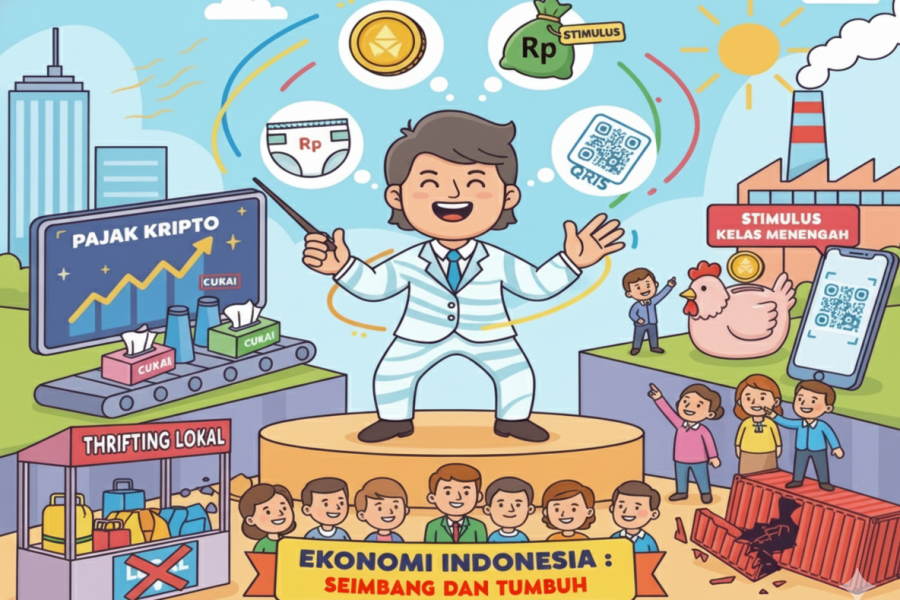
This period presents a contrast between the strong performance of Digital Tax revenue and the increasing need for fiscal stimulus to maintain economic growth momentum. Crypto Tax revenue, which has exceeded Rp1.7 trillion, demonstrates the significant potential of digital assets as a new revenue source for the state. Meanwhile, the government is reviewing the expansion of Excise objects, including products such as diapers and wet wipes. This fiscal tightening measure takes place amid a push for the government to provide Economic Stimulus to the Middle Class towards the end of the year. On another front, the QRIS payment system is once again highlighted positively, along with the affirmation of regulations concerning the used goods trade (Thrifting).
The government is pursuing fiscal base expansion and industrial regulation amidst calls for stimulus for Year-End Economic growth. Crypto Tax revenue reaches Rp1.7 trillion, with Indodax contributing nearly half of it. This figure affirms the significant potential of digital assets as a source of state revenue. In line with this expansion effort, diapers and wet wipes are being reviewed to become Excise goods. This review aims to find new revenue sources and carry out the extensification of Excise objects.
The fiscal tightening efforts emerge amid an urgent need to maintain growth momentum. The government needs to provide Economic Stimulus to the Middle Class to boost the Year-End Economy in 2025. This demand shows that domestic consumption still requires fiscal encouragement. On the industrial side, the Government does not indiscriminately crack down on Thrifting; what is prohibited is only Illegal Imported Used Clothing. This statement aims to provide legal certainty and separate legitimate local Thrifting businesses from illegal import activities.
Meanwhile, Indonesia gains international recognition for its payment technology advancements. Coordinating Minister Airlangga Hartarto reveals that QRIS is feared by other countries and is now used by 56 million people. This fact affirms Indonesia's progress in Payment Digitalization and its role on the global stage.
The impressive performance of Crypto Tax and the plan for Excise extensification (diapers, wet wipes) show the government's focus on securing and expanding the fiscal revenue base. However, this tightening must be balanced with the need for Stimulus for the Middle Class to maintain economic growth momentum. The success of QRIS places Indonesia at the forefront of digital finance, accompanied by regulatory clarity on trade (Thrifting) to protect domestic industry from Illegal Imported Used Clothing.
The latest developments show the government's increasingly strong focus on revenue recovery through Digital Tax reform, including the integration of e-money data and the acceleration of regional tax digitalization. On the other hand, external pressures such as the decline in foreign exchange reserves, and domestic issues like large losses from online gambling underscore the need for fiscal prudence and stricter law enforcement.